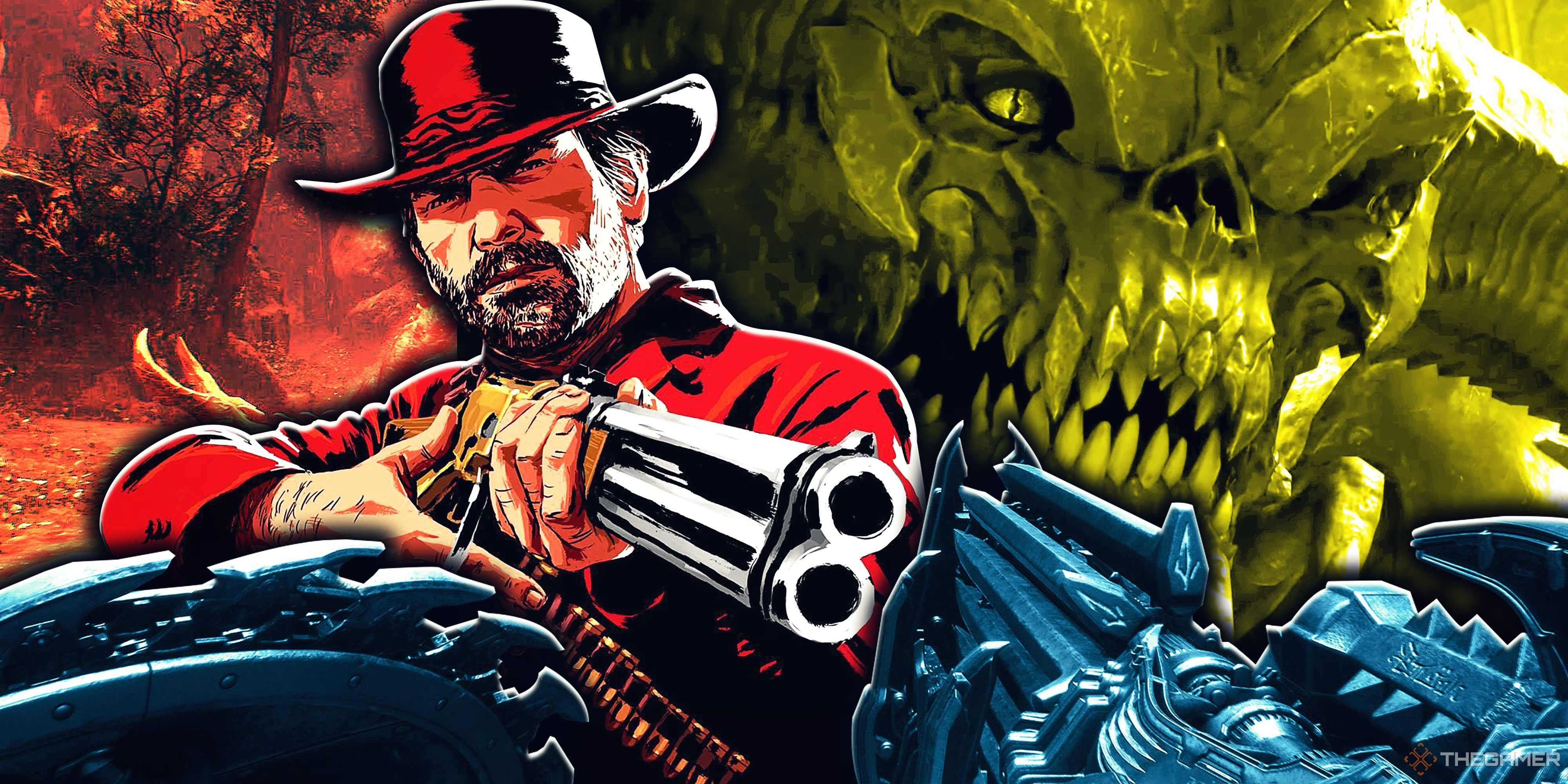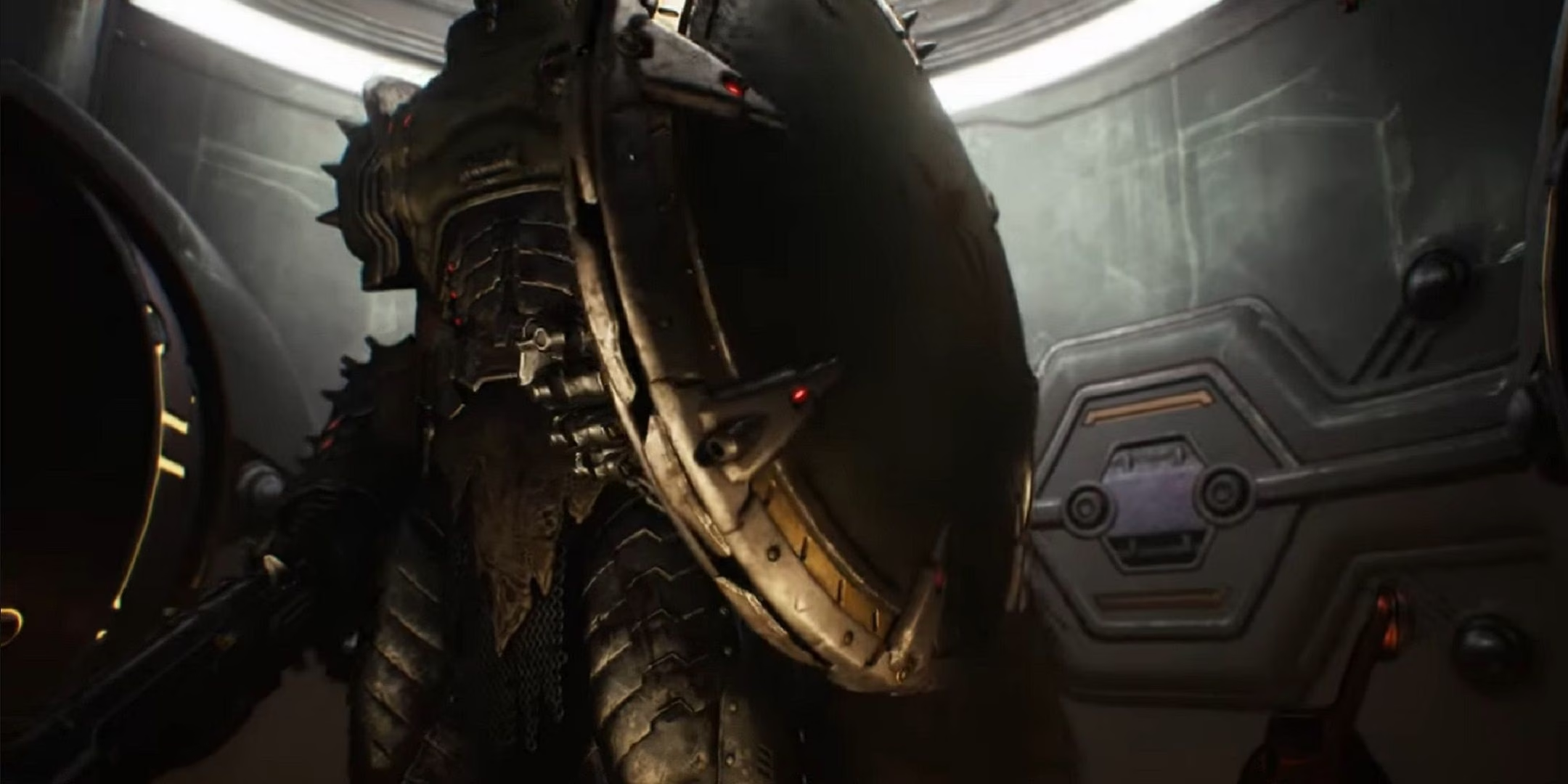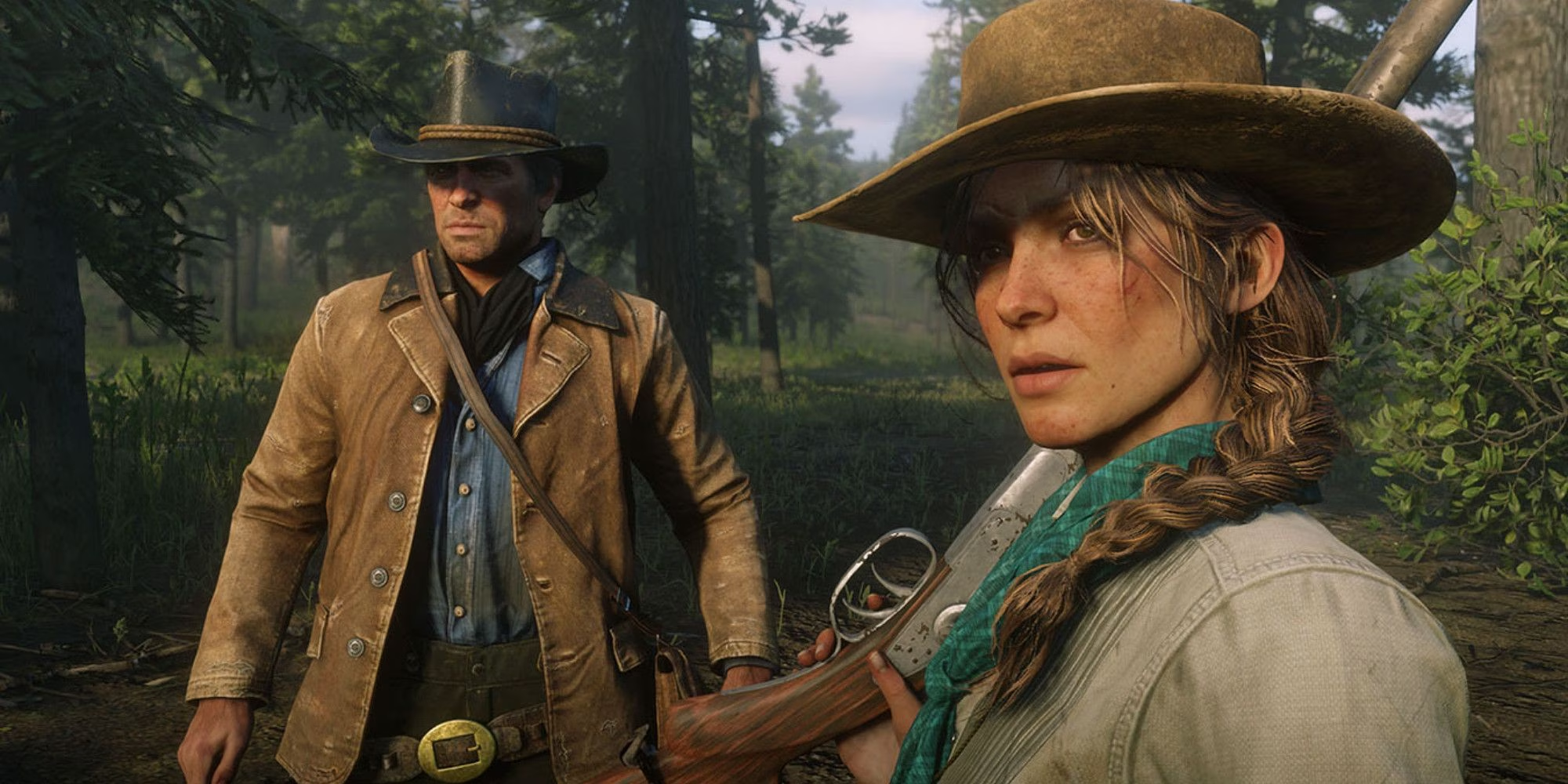In the vast landscape of modern gaming, controllers have become extensions of players' hands, often defaulting to predictable schemes that feel as comfortable as an old pair of shoes. X jumps, the left stick moves, the right stick adjusts the camera, and the right trigger invariably fires a weapon—a formula replicated across countless titles, making the experience instantly familiar but rarely groundbreaking. Yet, it's precisely this ubiquity that makes deviations so refreshing, offering moments where the left trigger, typically reserved for aiming down sights, transforms into something entirely unexpected. As players navigate through 2025, with its hyper-realistic worlds and immersive narratives, the evolution of control inputs like L2 isn't just a novelty; it's a catalyst for richer, more expressive gameplay. Games that dare to rethink these norms, such as Doom: The Dark Ages and Red Dead Redemption 2, stand out by turning routine actions into dynamic interactions, proving that innovation lies not in complexity but in creative redefinition. This shift challenges the status quo, inviting players to experience digital realms in ways that transcend the typical run-and-gun mechanics, all while fostering a deeper emotional connection through seemingly simple button presses.

The persistence of standard control layouts stems from decades of refinement. 🎮 Almost every action-adventure or first-person shooter relies on a core set of verbs mapped to triggers and buttons:
-
Left Trigger (L2): Aim down sights (ADS) in 90% of shooters.
-
Right Trigger (R2): Fire weapons—unchanged since the early days.
-
Face Buttons: Jump, crouch, or interact, depending on the game.
This consistency isn't inherently bad; it reduces friction, allowing players to dive into new titles without a steep learning curve. However, it also breeds monotony. 😊 For instance, in most big-budget releases of the early 2020s, L2 became synonymous with precision aiming, a functional necessity but rarely a source of joy. Enter games that disrupt this pattern, where L2 isn't just a tool for combat but a gateway to narrative depth and player agency.
Doom: The Dark Ages serves as a prime example of this reimagining. Players accustomed to modern FPS controls might initially fumble, as holding L2 doesn't scope in for a sniper shot. Instead, it readies the Doom Slayer's shield and locks onto an enemy, setting the stage for a brutal melee assault with R2.  This tweak feels subtle—after all, L2 still primes an attack—but its impact is profound. Unlike the detached precision of ADS, which distances players from visceral action, the shield mechanic demands close-quarters engagement, turning every encounter into a high-stakes dance of defense and aggression. It's a small change that amplifies the game's frenetic energy, forcing players to rethink muscle memory inherited from decades of shooters. Suddenly, L2 isn't just about aiming; it's about survival in a chaotic world.
This tweak feels subtle—after all, L2 still primes an attack—but its impact is profound. Unlike the detached precision of ADS, which distances players from visceral action, the shield mechanic demands close-quarters engagement, turning every encounter into a high-stakes dance of defense and aggression. It's a small change that amplifies the game's frenetic energy, forcing players to rethink muscle memory inherited from decades of shooters. Suddenly, L2 isn't just about aiming; it's about survival in a chaotic world.
But Red Dead Redemption 2 took this innovation to radical heights. In Rockstar's 2018 masterpiece, L2 became a social tool rather than a combat one. By holding it down, players could greet NPCs wandering the open world, initiating conversations that branched into Greet or Antagonize options.  This mechanic birthed countless player-driven moments, like Arthur Morgan starting with a polite "Hello sir," only to shift gears into a sarcastic "Good to see manners ain't dead yet," before unleashing a threat with Antagonize: "But you will be if you look at me like that again." These interactions weren't mere gimmicks; they created a tapestry of emergent storytelling, where players could oscillate between kindness and cruelty, all triggered by a single button press. 😂 The sheer hilarity of such combos—easily found in viral 2025 YouTube compilations—underscores how redefining L2 opened doors to expressive play, turning mundane strolls through Saint Denis into unforgettable comedic or dramatic sequences.
This mechanic birthed countless player-driven moments, like Arthur Morgan starting with a polite "Hello sir," only to shift gears into a sarcastic "Good to see manners ain't dead yet," before unleashing a threat with Antagonize: "But you will be if you look at me like that again." These interactions weren't mere gimmicks; they created a tapestry of emergent storytelling, where players could oscillate between kindness and cruelty, all triggered by a single button press. 😂 The sheer hilarity of such combos—easily found in viral 2025 YouTube compilations—underscores how redefining L2 opened doors to expressive play, turning mundane strolls through Saint Denis into unforgettable comedic or dramatic sequences.
As we move through 2025, the future of L2 hinges on whether developers embrace this legacy of creativity. While Rockstar's upcoming GTA 6 might revert to more traditional triggers due to its massive, populous world (recording unique lines for every NPC in Vice City could be prohibitively expensive), the torch doesn't need to rest with them alone. Indie studios and AAA teams alike are experimenting, as seen in recent titles like the 2024-released "Narrative Horizons" RPG, where L2 triggers environmental puzzles instead of combat. Consider this comparison of control innovations:
| Game Title | Year Released | L2 Function | Impact on Gameplay |
|---|---|---|---|
| Doom: The Dark Ages | 2024 | Shield and lock-on | Enhanced melee intensity |
| Red Dead Redemption 2 | 2018 | NPC interactions | Rich social dynamics |
| Recent 2025 Indie Hit "Echoes of Ember" | 2025 | Object manipulation | Deeper exploration |
The potential is limitless. Triggers, central to gaming since the PS1 era, often get pigeonholed into repetitive actions like shooting or aiming. Yet, with a dash of imagination, they can unlock worlds where players forge connections, solve mysteries, or even build communities. Why stop at violence? In 2025's gaming ecosystem, titles are beginning to use L2 for things like calming animals in survival games or orchestrating musical sequences in rhythm adventures. This evolution reflects a broader shift—players crave variety, and developers who innovate controls can transform passive experiences into active engagements.
Ultimately, the magic lies in simplicity. A single button change can ripple through an entire game, fostering immersion that transcends traditional mechanics. As players, we've grown so accustomed to controllers that we risk overlooking their full potential. 😊 But in 2025, with technology advancing and narratives deepening, it's time to demand more. Developers, break the mold—rethink those triggers. Players, seek out games that challenge conventions. Together, let's turn every press of L2 into an adventure.